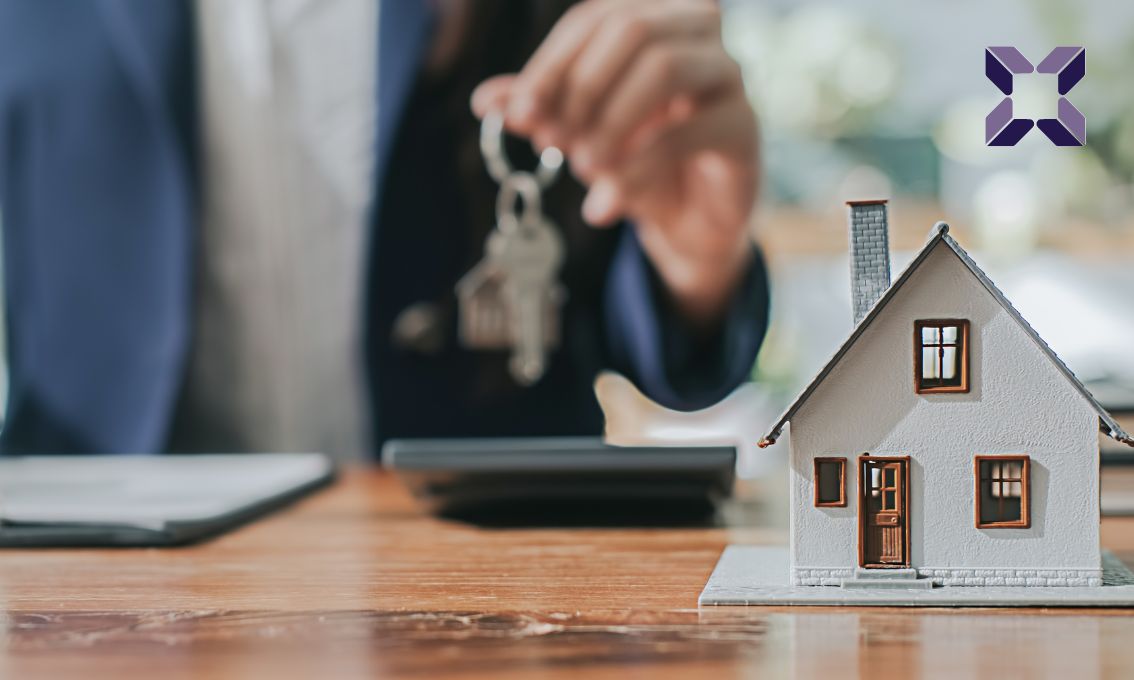
Planning & protection

Are you ready to become a first-time buyer? Taking the plunge to making your first step on the property ladder and buying a first home is unfamiliar territory and, for many, a daunting experience.
In a world of credit scores, LTV and mortgages, we have listed the most pressing questions we get asked by first-time buyers.
A mortgage is a loan that is secured against your home. This means that if you default on the mortgage, your home could be repossessed by the lender. The amount of money you can borrow with a mortgage will depend on your income and outgoings, as well as the value of your property. The interest rate you pay on your mortgage will also affect how much you end up paying back in total. Mortgages typically last for 25 years.
An Agreement in Principle (sometimes called an AIP, Mortgage in Principle or Decision in Principle) is an estimate from a mortgage provider of how much they would be willing to lend you. An Agreement in Principle gives you a good basis to understand what kind of property you might be able to afford to purchase.
The document outlines the main terms and conditions of a proposed mortgage. It’s issued by a lender after they’ve carried out an initial assessment of your finances and affordability. However, it’s important to remember that an AIP is not a formal offer of credit and should not be treated as such.
But if you’re looking to buy a property, getting an AIP from a lender could be a good first step in your journey. It could give you some peace of mind knowing that you’re on the right track when it comes to your finances and borrowing power.
When you buy a property in England and Northern Ireland, you may need to pay Stamp Duty Land Tax (SDLT). This is a tax that is levied on the purchase price of the property. The amount of tax that you may need to pay depends on the value of the property and the type of property that you are purchasing. The tax is different if the property or land is in Scotland where you pay Land and Buildings Transaction Tax, and in Wales you pay Land Transaction Tax if the sale was completed on or after 1 April 2018.
A solicitor will handle all the legal elements of your purchase like completing searches, creating contracts and transferring money. The choice of solicitor is yours, but it’s an important one, so make sure you do your research. There are a few things to consider when choosing a solicitor when buying a property.
You’ll want to make sure that the solicitor is experienced in conveyancing, as this is the legal process associated with transferring ownership of a property. You’ll also want to ensure that the solicitor is accredited by the Law Society, which is the professional body for solicitors in England and Wales.
Your solicitor should also offer a competitive fee structure. By doing your research and taking all of these factors into consideration, you can be sure that you’re choosing the best possible solicitor for your needs.
There are a few key pieces of paperwork that you will need when applying for a mortgage. You’ll need to provide proof of your income and employment history and provide your last three months of bank statements.
Loan-to-value, or LTV, is the ratio of how much you borrow against a property compared to its value. It’s usually expressed as a percentage. For example, if you’re buying a property worth £200,000 and you have a mortgage for £150,000, your LTV would be 75%. That means that you would have a 25% deposit.
The higher your LTV ratio, the riskier it is for the lender because there’s a greater chance that they could end up losing money if you default on your loan and they have to sell the property. That’s why loans with high LTV ratios often have higher interest rates.
There are a number of different types of mortgages which vary from lender to lender and depend on your needs and circumstances. For example, if appropriate, you could choose from a fixed rate, variable rate, tracker rate and discount rate mortgage.
It’s also a good idea to familiarise yourself with different interest rate options and how these could affect your monthly payments. First-time buyers typically start off on a fixed term deal (meaning that the interest rate is fixed for a set term), but there are also other interest rates that might work for you such as variable, discounted and tracker.
There are a variety of schemes that you might be eligible for, such as Help to Buy and Shared Ownership, which you can read about on the government’s Own Your Home website. First-time buyers have very little time to use the Help to Buy equity loan scheme before it closes to new applicants. The flagship initiative to help people get onto the property ladder will stop accepting new applications at 6pm on 31 October, before closing completely on 31 March 2023.
The government First Homes scheme was announced in June 2021 and aims to help first-time buyers in England purchase their first home. The scheme will see a number of new-build homes go on the market and be sold at a discount to eligible first-time buyers.
A mortgage guarantor is a third-party, usually a parent or guardian, who agrees to cover the repayments on a mortgage in the event that the borrower is unable to make them. This arrangement can be useful for people who might struggle to get a mortgage approval due to their financial situation.
The guarantor will need to be able to prove that they are able and willing to make the mortgage repayments if required. This usually means having a good credit history and sufficient income. The guarantor may also be asked to provide security, such as a property or savings, to cover the loan.
If you’re self-employed and looking to get a mortgage, there are a few things you’ll need to take into account. Lenders will typically require proof of income and tax returns for the past three years in order to assess your affordability. They will also ask for additional information such as bank statements and invoices.
It’s important to remember that self-employed applicants may be considered higher risk by lenders, so it’s worth shopping around to find a deal that’s right for you. We can assist you to navigate the mortgage process.
Aside from the deposit, there are other costs that you need to be aware of when taking out a mortgage. If applicable, in England and Northern Ireland there is the issue of Stamp Duty Land Tax (SDLT). In Scotland there is a Land and Buildings Transaction Tax and in Wales a Land Transaction Tax. The amount you pay will depend on the purchase price of the property.
You will also need to pay for a valuation of the property. This is so that the lender can assess how much the property is worth and whether it is worth lending against. And typically you’ll pay an application fee, and a booking or reservation fee. You’ll also want to set some money aside for buildings insurance.
The answer is yes, gifts are perfectly acceptable as deposits for mortgages, as long as they meet certain criteria. Your lender may also require you to fill in and sign a gifted deposit letter or declaration as proof.
The gift must come from a close relative – typically a parent, grandparent or spouse. The lender will want to see evidence of this relationship, so it’s important to have documentation ready.
The gift must also be unconditional – that is, there can be no strings attached. The lender needs to be confident that the money is truly a gift and not a loan that needs to be repaid and the gift is typically large enough to cover the deposit amount.
When you’re buying your first home, we could help you get to where you want to be.
For more information about your mortgage requirements, we’ll help you get the answers you need. To discuss your options, get in touch with a Fairstone adviser today.
| Match me to an adviser | Subscribe to receive updates |
YOUR HOME MAY BE REPOSSESSED IF YOU DO NOT KEEP UP REPAYMENTS ON YOUR MORTGAGE.
[1] ONS.gov.uk